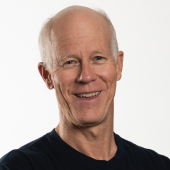
The Alaskan Seaweed Genetics Workshop (April 2024) - Searching for seaweed solutions; summary and conclusions
Scott Lindell, Research Specialist, Woods Hole Oceanographic Institution, USA

The Alaskan Seaweed Genetics Workshop (April 2024) - Searching for seaweed solutions; summary and conclusions
Scott Lindell, Research Specialist, Woods Hole Oceanographic Institution, USA
About speaker:
Scott Lindell has led Aquaculture Research programs at the Marine Biological Laboratory, and currently at the Woods Hole Oceanographic Institution in Massachusetts over the last 24 years. His R&D programs take a multi-disciplinary approach to practical challenges that require cooperation between commercial and academic partners focussed on seaweed and shellfish farming. Current projects include demonstration projects for sugar kelp in Alaska, tropical seaweeds in Puerto Rico, and leading a selective breeding program for sugar kelp in New England.
Company:
Established in 1930, Woods Hole Oceanographic Institution (WHOI) on Cape Cod is the largest private nonprofit ocean research, engineering, and education organization in the world today with over 1,000 employees.
Presentation:
Preservation of genetic diversity remains an important topic in conservation genetics and aquaculture. Resource managers in Alaska are concerned about the genetic impacts of aquaculture on wild stocks, and as a result have adopted a precautionary approach. This precautionary regulation mandates that a minimum of 50 wild individuals within a 50 km radius be used as a seed source for seaweed farming. This regulation has the potential to limit the growth of the industry, and so the industry is interested in identifying alternative approaches. The genetic structure of seaweed species can vary from region to region and overall, remains lesser known, despite the commercial and ecological importance of these species. In April, Alaska Sea Grant, the Alaska Mariculture Research and Training Center, and the Alaska Fisheries Development Foundation hosted a Seaweed Genetics Workshop with goals to illuminate areas of research to support the sustainable management of seaweed aquaculture as well as initiate a conversation between scientists and industry. Scientists from within and outside of Alaska gathered to learn how various regions address seaweed genetics concerns with hopes to inform management of practices that can support industry growth without harming wild stocks. Topics of discussion included population genetics of kelp along the east coast and Puget Sound, selective breeding of macroalgae in New England, gametophyte cultivation, non-reproductive kelp, seed banking, as well as heat stress tolerance of seaweeds in a changing ocean. Panel and breakout discussions focused on exploring how this information could be applied in Alaska. Our presentation will describe future directions of research to inform future management and continued growth of Alaska’s mariculture industry that were recommended in the workshop.